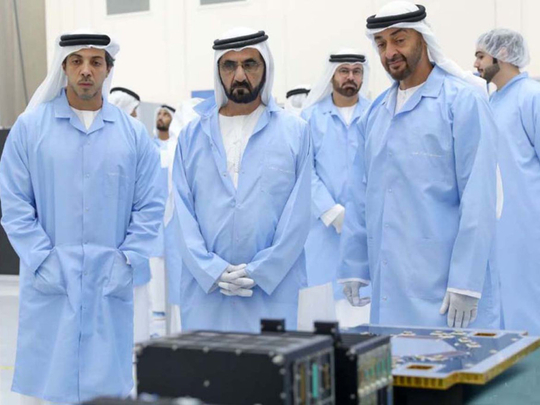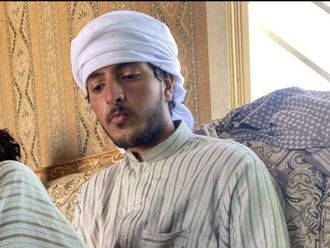
Dubai: The UAE on Wednesday launched a hunt to identify four young Emirati astronauts who will be sent to space as part of the country’s ambitious space exploration programme.
His Highness Shaikh Mohammad Bin Rashid Al Maktoum, Vice-President and Prime Minister of the UAE and Ruler of Dubai, on Wednesday called on young Emirati men and women to register for the UAE Astronauts Programme to become the nation’s first batch of astronauts.
“On this day, a new chapter in our history begins with the launch of the first UAE Astronaut Programme, dedicated to training and sending four Emirati Astronauts into space,” Shaikh Mohammad said.
“The people of the UAE will break barriers; there is no power strong enough to stand in the way of those who believe nothing is impossible. Our ambitious goals are fuelled by dedicated people, who support us until, without hesitation or scepticism, we succeed,” he added.
First of its kind
The programme is the first of its kind in a series of projects in the country as it gears towards prioritising advanced sciences in order to empower future generations.
The UAE is investing in science programmes to help serve national interests in the future, actively participating in global space exploration, and exploring the prospects of human life in space, including the possibility of inhabiting other planets.
“I invite young Emiratis to register for the UAE Astronaut Programme through the Mohammad Bin Rashid Space Centre at www.mbrsc.ae/astronauts. The most competitive applicants will be selected to be ambassadors for the UAE in space exploration. However, every single Emirati will contribute in his or her own way to the future of the UAE, whether it’s on land, or in the skies,” Shaikh Mohammad said.
Online application
Any Emirati 18 years and above may take their first step towards space by completing the online application form and submitting the required additional information and supporting documents to the UAE Astronaut programme at the centre.
In 2018, as part of the selection process, applicants will go through two rounds of medical and psychometric examinations and two rounds of interviews or screenings to determine their suitability to fly to space.
Those who pass the screening process will be selected as part of the Astronaut Corp in 2019.
Within five years, the four chosen Emirati candidates undergo a series of trainings for three years in different destinations overseas at specialist astronaut training facilities.
Only then will they be sent to the International Space Station (ISS) to carry out vital experiments and to share knowledge and experience with other global astronauts.
Basic training
The four Emirati astronauts will go through Basic Training from 2019 to 2020, which consists of a one-year module that will give them an overview of the UAE Space Programme. There they will learn various disciplines such as space engineering and scientific research.
As the basic training progresses, the astronauts be taught about life aboard the ISS, a habitable artificial satellite in low earth orbit. The astronauts will learn about procedures and systems on the space station, as well as the launch process.
The final part of training consists of the preparation for an EVA or extravehicular activity, popularly known as the spacewalk, rendezvous and docking, and performance training.
From 2020 to 2021, the four Emirati Astronauts will go through advanced training that may last for one to two years where they will learn crucial day-to-day life on the space station plus how to conduct different scientific experiments while at the ISS.
The UAE Astronauts Programme is part of the UAE National Space Programme, which provides an integrated science and research system to advance the future of the space sector in the UAE.
It includes training and sending Emirati astronauts to space, building the first human settlement on Mars by 2117, and launching the unmanned Hope Spacecraft to orbit Mars in 2021.












